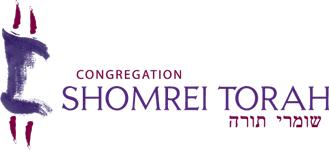Preparation for the High Holy Days involves a practice known as T’shuvah. The National Jewish Center for Learning and Leadership (CLAL) describes this process in T’shuvah: A Haggadah for the High Holy Days:
“We review our life stories at this time of year as part of a much larger process the rabbis refer to as T’shuvah. T’shuvah is the spiritual practice of redirecting our attitudes and actions. The T’shuvah process begins with questions of self-reflection: How have I acted in the past year? Whom have I hurt? How have I hurt myself? T’shuvah calls us to see how our personal choices are responsible for the lives we have led. T’shuvah reminds us that we do have power to make subtle, and often profound, adjustments to ourselves, our families, and our communities. Ultimately, T’shuvah leads to the question: What will be the responsibilities, the mitzvot, that I commit myself to the in the coming year?”
There are numerous ways to approach T’shuvah, and countless things we can focus on. In the coming weeks, which fall during the month of Elul, this blog will give us a chance to reflect on some practical aspects of our lives. We will be posting questions, resources, and topics for us to discuss together. Many of the ideas are drawn from CLAL’s publication.
You may choose to keep your reflections private or to share your thoughts with others on this ElulBlog. Look for posts on Wednesdays and Sundays from now until the Holy Days arrive:
Time (Wednesday, 8/7 – 1 Elul)
Money (Sunday, 8/11 – 5 Elul)
Health (Wednesday, 8/14 – 8 Elul)
Family (Sunday, 8/18 – 12 Elul)
Work (Wednesday, 8/21 – 15 Elul)
Tribe (Sunday, 8/25 – 19 Elul)
Justice (Wednesday, 8/28 – 22 Elul)
Legacy (Sunday, 9/1 – 26 Elul)
A sweet and good new year (Wednesday, 9/4 – 29 Elul)
